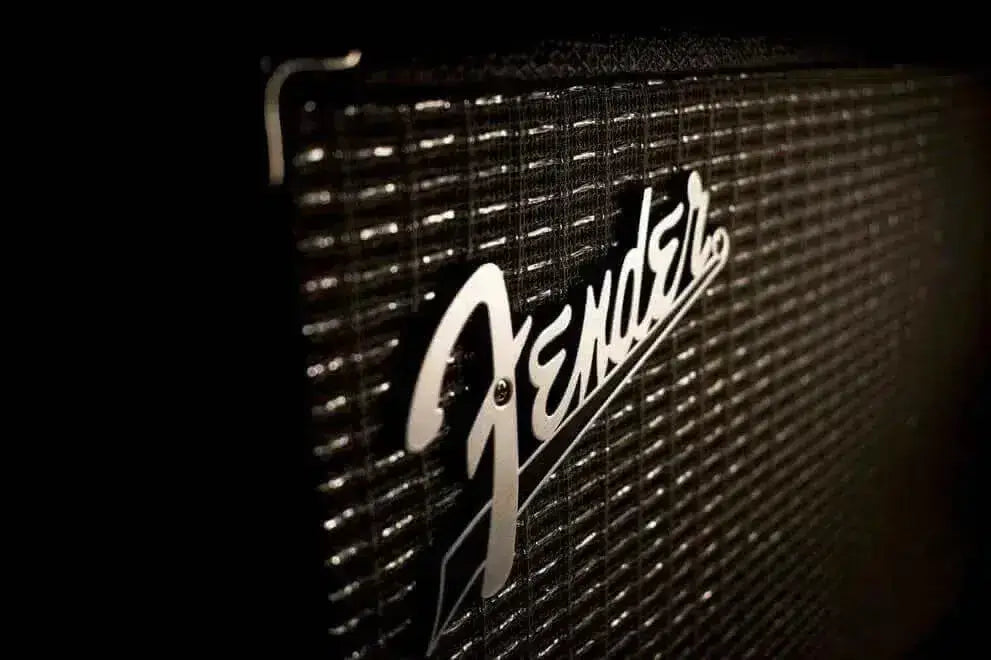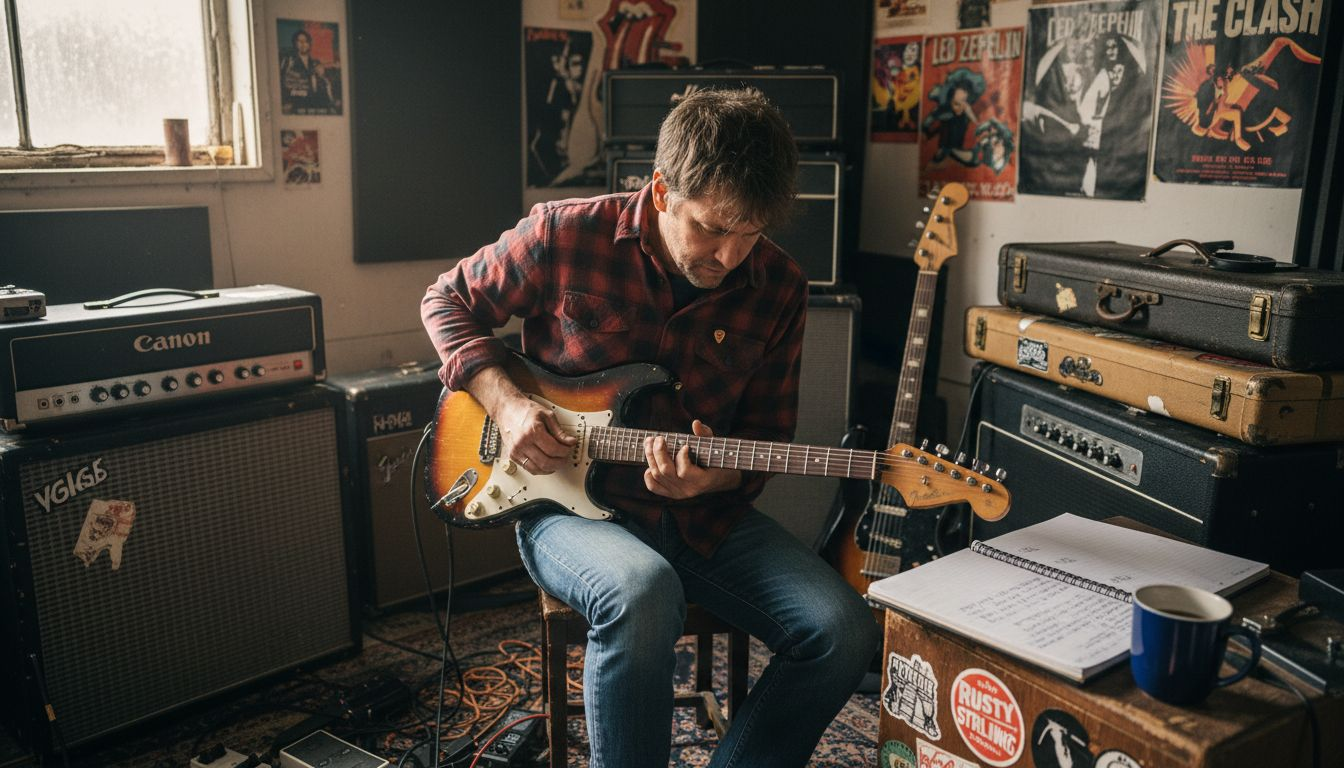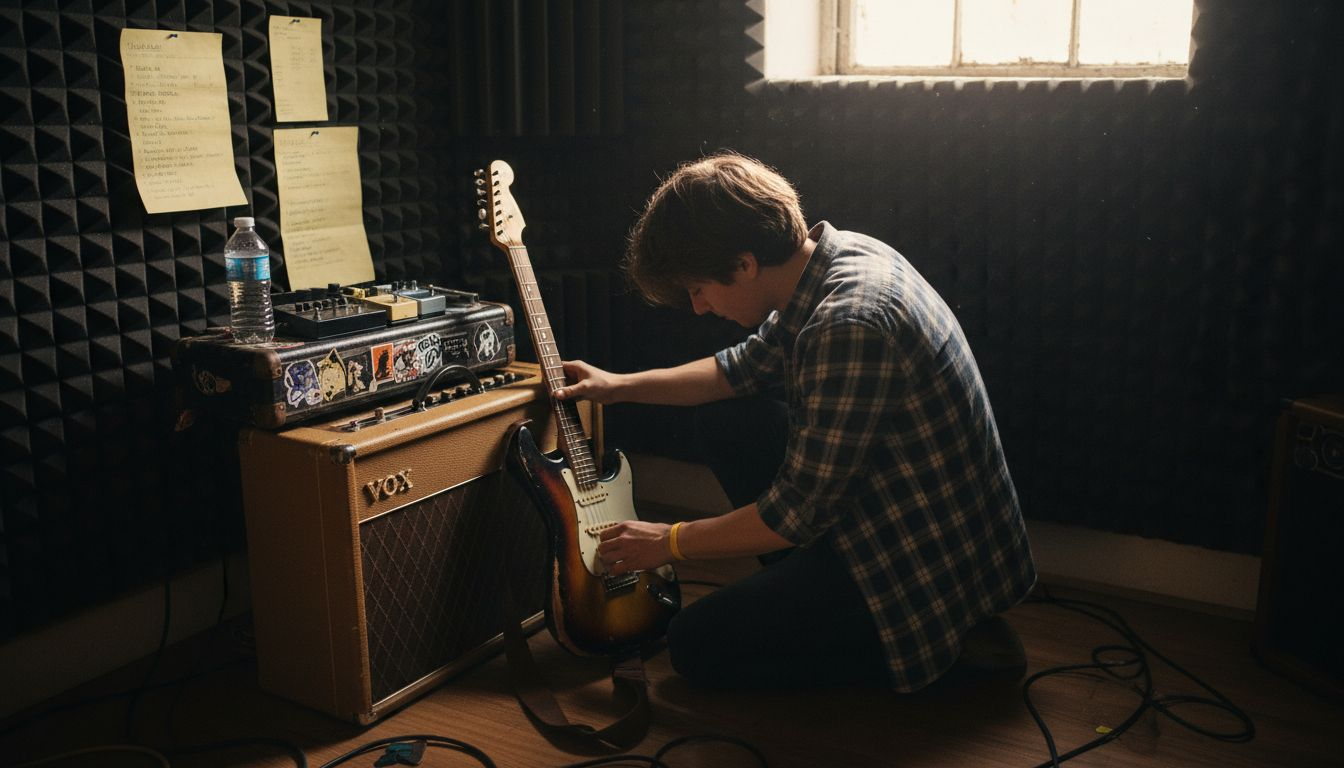Everything in your electric guitar revolves around the amplifier. Thus it has the power to either enhance or detract from your performance. It is vital to be particular when choosing an amplifier at your local music shop.
In this article, we will run you through how you can ensure you are buying the best amplifier.
What Makes a Good Amplifier?
An excellent amplifier delivers excellent sound. This should be your primary deciding element, so you will need to listen carefully before your purchase.
Unfortunately, few people have the time or opportunity to test amplifiers extensively. For the knowledgeable, though, an amplifier's specifications sheet may reveal its quality and capacity to provide superb sound.
Here are some essential factors to consider when purchasing an amplifier.
Analog or Digital/Solid State?
Each has it's positives & negatives.. here we go! - Valve amps, lovely warm tones with nice harmonic overtones, break up nicely for natural distortion & overdrive.
Solid State amps offer a cheaper alternative to valve amps but are more 'hi-fi' sounding and overdrives can be a little harsher sounding. more recently manufacturers have developed Digital guitar amps which are super versatile, can have loads of your favourite effects built in, stereo versions give a big sound and they can emulate the amps sounds you've heard on your favourite records.
there really is nothing like a valve amp, the tubes used will make a huge difference in the type of sound you'll achieve which is why some of the famous brands are built on a certain valve type, ie Vox generally used el84, whereas Marshall would use EL34, Fender on the other hand 6v6 or 6L6 and Orange KT88.. the downside can be that valve amps sometimes sound different in different venues or if you can't quite crank it to the volume you want to get 'that tone' it can be disappointing it's not as good as before, but when you get it right the sound is unbelievable! - they can be heavy to lift and you've got the upkeep of servicing and making sure you're not throwing the amp around with those delicate glass tubes in!
Solid state and Digital maps offer a good compromise to a valve amp (or a bunch of valve amps) - they're much lighter to carry around and the sound you get at low volume doesn't alter too much as you turn it up. Because PA's these days are so good the modelling amps available with a direct out will help to make sure 'your sound' is replicated out front when you need it, so we see a lot of guys who tour using things like Kemper or Line6 Helix because they can setup their sounds before the gig and know what's coming through their headphones won't vary too much by the time it gets to the house speakers in the PA system.
Different Distortion Dilemma Amp Classes
There are four classes of Distortion Dilemma Amplifiers: A, B, AB, and D. These classes are inextricably linked to Total Harmonic Distortion (THD). The smaller the distortion, the closer the sound will resemble the original.
Class A amplifiers generally have a low power efficiency (20%) and emit a lot of heat. Meanwhile, class B pulls and pushes, resulting in around 75% efficiency but substantially greater THD levels. AB delivers the best of both worlds.
The most efficient (90%) is Class D, although the sound quality is inferior to the others. As a result, they're found in low-cost Home Theatre in a Box.
How High Is the Wattage?
Your amplifier's power output (watts) indicates how loud it can play music. A higher wattage is required for a larger space. However, you do not need as much power as you may believe. Anything between 10W and 40W solid state will suffice if for home use. If you are a gigging musician then similar wattage valve amps will give you enough db to keep above a drum kit for smaller gigs.
How Sensitive Are They to Speakers?
You should pay particular attention to speaker sensitivity, which measures how much acoustic energy a speaker produces in relation to the electrical power supplied.
If your speaker sensitivity is low, you'll need additional amplification to achieve greater listening levels. The impedance rating of the speakers is the final consideration. If your speakers' impedance is less than four ohms, you'll require a highcurrent amplifier.
guitar speakers are generally rated either 8 or 16 ohms, if you're matching a valve head up with a speaker cab you need to pay careful attention to this so you're not overworking your amplifier or potentially damaging your speakers.
Important Specifications
You should look into various specifications when getting an amplifier from your nearby music shop. Make sure to look into the following:
- S/N or Signal to Noise Ratio: A slight buzzing noise is always present within an amplifier. This whizz is reduced with a quality amplifier. The higher the numerical value of the S/N ratio, the better the sound quality.
- Crosstalk: Crosstalk refers to the amount of unwanted left signal mingling with the right signal and vice versa. The more crosstalk there is, the more the stereo sound is harmed. A stereo separation of 100dB is better than a stereo separation of 60dB.
- Dynamic Headroom: This is a measurement of the amplifier's capacity to generate substantially more power over short periods. Low dynamic headroom amplifiers sound flat because they compress all peaks and high frequencies to fit inside limited headroom.
Do You Have Enough Inputs and Connections?
Ensure you have enough inputs to accommodate everything you need to plug in, this said; you normally only have a single input on most electric guitar amps otherwise you have guitars fighting for the same frequencies if you plug more than one in, also there could be an impedance mismatch which would mean one guitar will always be louder than the other.
practice amps these days can have USB outputs & aux inputs to play along with backing tracks or record straight into a DAW
Conclusion
Hopefully, this article has helped you see the necessity of choosing a quality audio amplifier. It is the cornerstone of your audio system, the powerhouse that emits the sounds you enjoy. It is worth taking the time to research and learn what makes a good amplifier to make a purchase you won't regret. If you can get the tones you're after from a digital combo you'll save a lot of money! - some of us still want that authentic valve sound and one amp doesn't do it all.. they're getting better all the time but you can never have too many amps (or guitars)... that's the rule and we're stocking by it.
Are you looking for a music store in East Anglia? Musicstreet offers hundreds of amplifiers, effect pedals, instruments, and accessories for your music needs. Check out our collection today!
OUR MOST POPULAR SEARCHES :
Guitar Strap | Yamaha Revstar | PRS Custom 24 | PRS Guitars | Les Paul Guitars | Guitar Amp | Martin Guitars | Fender Acoustic Guitar | Electric Guitar For Beginners | Guitar Accessories | Electric Guitar | Bass Guitar | Acoustic Guitar | Guitar Strings | PRS Silver Sky | PRS McCarty 594 | Maton Guitars | PRS Tremonti | Patrick James Eggle Guitars | PRS Hollowbody ii Piezo




Share:
Everything you need to know about choosing guitar sizes
Signs Indicating That Your Guitar Is in Need of Proper Setup